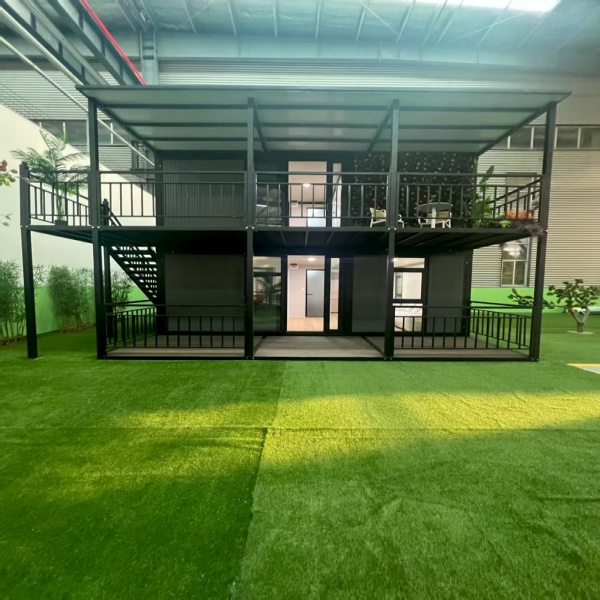-
E-mail
Austin120521@outlook.com -
E-mail
sales@jujiuhouse.com -
Telephone
+86-17864099991 -
Telephone
+86-17854044442
- Chinese
- French
- German
- Portuguese
- Spanish
- Russian
- Japanese
- Korean
- Arabic
- Irish
- Greek
- Turkish
- Italian
- Danish
- Romanian
- Indonesian
- Czech
- Afrikaans
- Swedish
- Polish
- Basque
- Catalan
- Esperanto
- Hindi
- Lao
- Albanian
- Amharic
- Armenian
- Azerbaijani
- Belarusian
- Bengali
- Bosnian
- Bulgarian
- Cebuano
- Chichewa
- Corsican
- Croatian
- Dutch
- Estonian
- Filipino
- Finnish
- Frisian
- Galician
- Georgian
- Gujarati
- Haitian
- Hausa
- Hawaiian
- Hebrew
- Hmong
- Hungarian
- Icelandic
- Igbo
- Javanese
- Kannada
- Kazakh
- Khmer
- Kurdish
- Kyrgyz
- Latin
- Latvian
- Lithuanian
- Luxembou..
- Macedonian
- Malagasy
- Malay
- Malayalam
- Maltese
- Maori
- Marathi
- Mongolian
- Burmese
- Nepali
- Norwegian
- Pashto
- Persian
- Punjabi
- Serbian
- Sesotho
- Sinhala
- Slovak
- Slovenian
- Somali
- Samoan
- Scots Gaelic
- Shona
- Sindhi
- Sundanese
- Swahili
- Tajik
- Tamil
- Telugu
- Thai
- Ukrainian
- Urdu
- Uzbek
- Vietnamese
- Welsh
- Xhosa
- Yiddish
- Yoruba
- Zulu
- Kinyarwanda
- Tatar
- Oriya
- Turkmen
- Uyghur

China space capsule house
China's Space Capsule House Concept: A New Horizon in Housing
The idea of a China space capsule house often conjures images of futuristic and compact living spaces. It's a concept that piques curiosity both for its innovative approach to housing and for the perceived challenges it addresses, such as urban density and resource efficiency. Though misunderstood by some as purely novel showcases, these structures hold potential that's grounded in practical application rather than mere aesthetic allure.
Understanding the Concept
In essence, a space capsule house isn't just a stylistic choice; it's a well-thought-out solution that merges technology and lifestyle. The core principle leans heavily on maximizing limited space through innovative design, which could be a game-changer in heavily populated regions. Now, why is China leading this trend? Simply put, necessity breeds innovation. With urban areas expanding and land becoming a luxury, such housing solutions are more than appropriate—they're essential.
Drawing from my experiences with modular construction, I've seen first-hand the complexities and efficiencies that come with this technique. It's not merely about stacking or connecting prefabricated units. The challenge lies in meeting regulatory standards, ensuring comfort, and optimizing resource usage—all while keeping costs in check. Companies like Shandong Jujiu Integrated Housing Co., Ltd. are pivotal players in this arena, turning these concepts into practical, livable conditions.
What fascinates me most is the adaptability of these structures. They’re like living organisms, capable of evolving with the needs of their occupants. Whether it's through smart technology integration or innovative engineering techniques, these homes underscore the dynamic nature of modern housing solutions.
Technology Behind the Design
Integrating technology into housing isn’t new, but the way China space capsule houses apply it is rather unique. With a background in engineering, I can attest to the importance of intelligent systems in resource management within these homes. Automation for climate control, energy use, and space adaptability can significantly elevate the dwelling experience.
We've seen examples of this technology-driven approach through companies like Shandong Jujiu Integrated Housing Co., Ltd. By leveraging their expertise in steel structures and module assembly, they can rapidly construct adaptable homes tailored to specific needs. The key here is in customizability—these aren't one-size-fits-all solutions.
These modular homes go beyond mere shelter; they represent a shift towards a more sustainable lifestyle. Real time data on energy efficiency and environmental impact can inform improvements, making these homes a cornerstone in the push for greener living spaces.
Economic Impact and Affordability
One of the most practical benefits of a space capsule house is cost efficiency. Compared to traditional brick-and-mortar structures, these houses can be significantly cheaper to produce and maintain, a factor that’s critical in China's competitive housing market. From my perspective in the housing industry, I see this as a factor that positions such homes as viable alternatives for a wider demographic.
For many, the appeal lies in reduced construction time and lower labor costs. Modular assembly ensures that construction is less weather-dependent, leading to fewer delays and increased predictability in project completion. This makes them financially attractive both for buyers and developers.
The scalability of these homes allows for strategic growth and planning in urban settings. Areas once thought too expensive or logistically challenging to develop suddenly become viable with the deployment of modular housing solutions.
Challenges and Considerations
Of course, this doesn't come without challenges. Durability concerns, especially in varying climate conditions, need to be addressed. It’s here that the expertise of established companies, such as Shandong Jujiu Integrated Housing Co., Ltd., becomes invaluable. Their comprehensive approach to design and engineering can mitigate some issues inherent in modular construction.
Another consideration is the social acceptance of living in such non-traditional spaces. While younger generations gravitate towards modern and efficient homes, some potential buyers may need more convincing about the long-term viability and comfort of these structures.
Sustainability is also a crucial factor. With increased scrutiny on environmental impacts, the industry must continue innovating to ensure materials and processes adhere to ecological standards. This demands collaboration between engineers, designers, and environmental scientists.
Looking Ahead: The Future of Housing
As urban populations swell, the relevance of China space capsule houses will likely increase. They represent more than just a trend; they are part of the broader evolution in how we perceive and interact with our living spaces. Future developments may focus on enhancing connectivity and interactive elements, making these homes not just places to live, but hubs of community and activity.
Companies like Shandong Jujiu Integrated Housing Co., Ltd. are continuously pushing the envelope, integrating cutting-edge technologies with practical design and craftsmanship. Their role and innovation are crucial as we redefine modern living spaces.
In retrospect, the journey of the space capsule house concept is ongoing, marked by exploration, adaptation, and progression. The very nature of these homes embodies a readiness to embrace change, an acceptance of new challenges, and a steadfast commitment to innovation. That's what makes this field exciting and promising for industry professionals and future homeowners alike.
Related products
Related products
Best selling products
Best selling products-
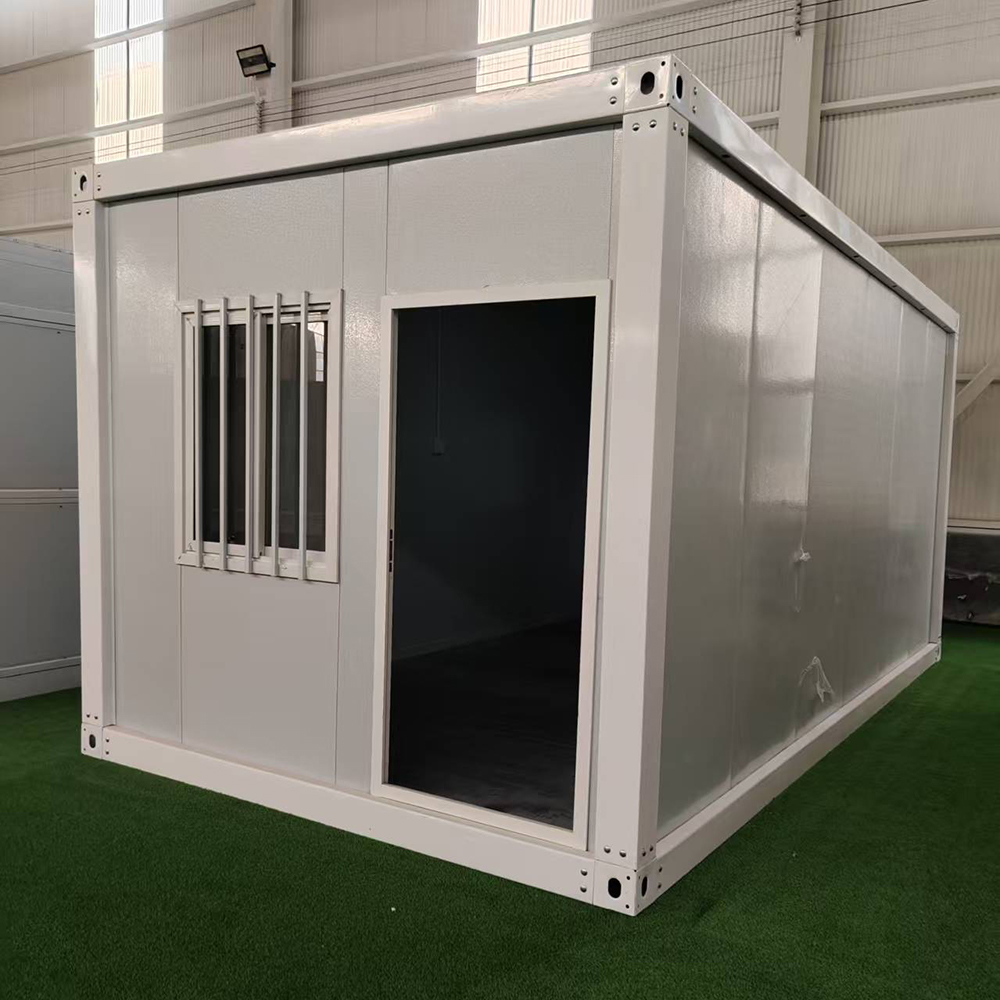 Folding Container Moving House Modular Office Container House Prefab Container for Outdoor Use
Folding Container Moving House Modular Office Container House Prefab Container for Outdoor Use -
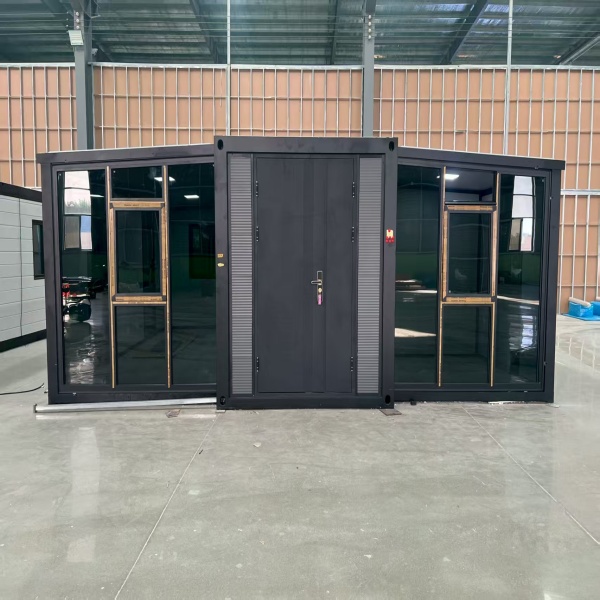 Customizable Office Mobile Home with Flat Roof and Double Wing Expansion Box, Convenient Container
Customizable Office Mobile Home with Flat Roof and Double Wing Expansion Box, Convenient Container -
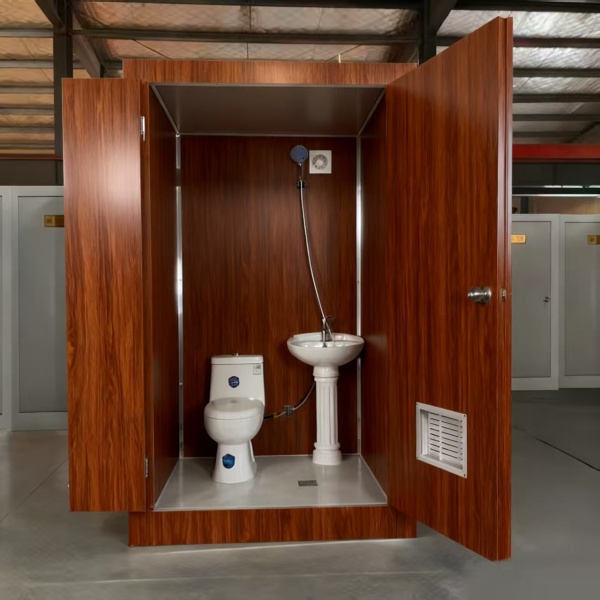 Portable outdoor camping bathroom, mobile toilet, prefabricated modular villa & rental of outdoor and indoor showers
Portable outdoor camping bathroom, mobile toilet, prefabricated modular villa & rental of outdoor and indoor showers -
 A container house with a terrace and double-wing folding design, suitable for various purposes such as offices, meeting rooms, living rooms, etc.
A container house with a terrace and double-wing folding design, suitable for various purposes such as offices, meeting rooms, living rooms, etc. -
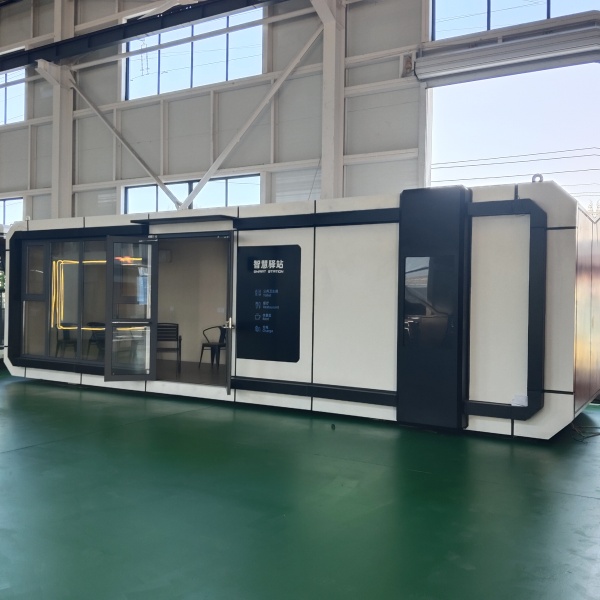 Modular modern movable apple cabins, customized high-end folk houses and portable bedrooms, delivered as a whole
Modular modern movable apple cabins, customized high-end folk houses and portable bedrooms, delivered as a whole -
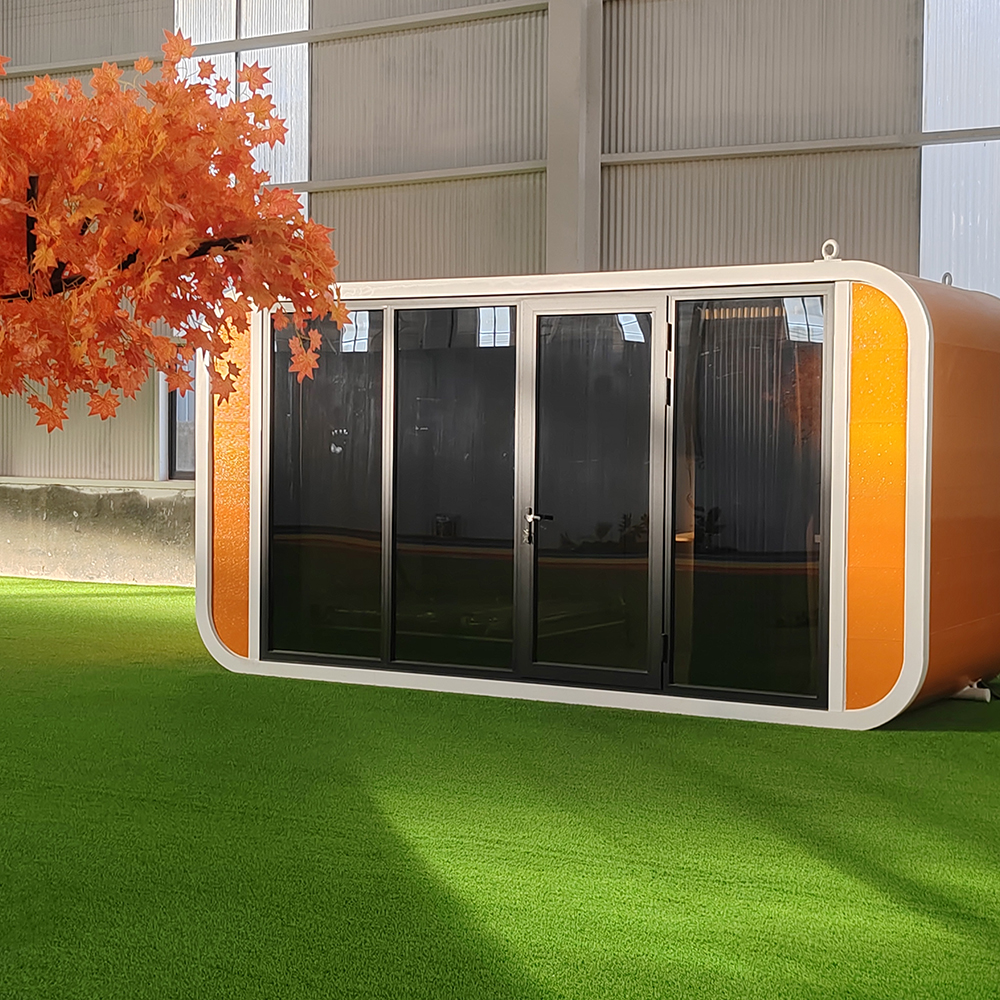 Luxury Prefabricated Living Container House Modular Glass Tiny House Prefab Container Home Apple Cabin
Luxury Prefabricated Living Container House Modular Glass Tiny House Prefab Container Home Apple Cabin -
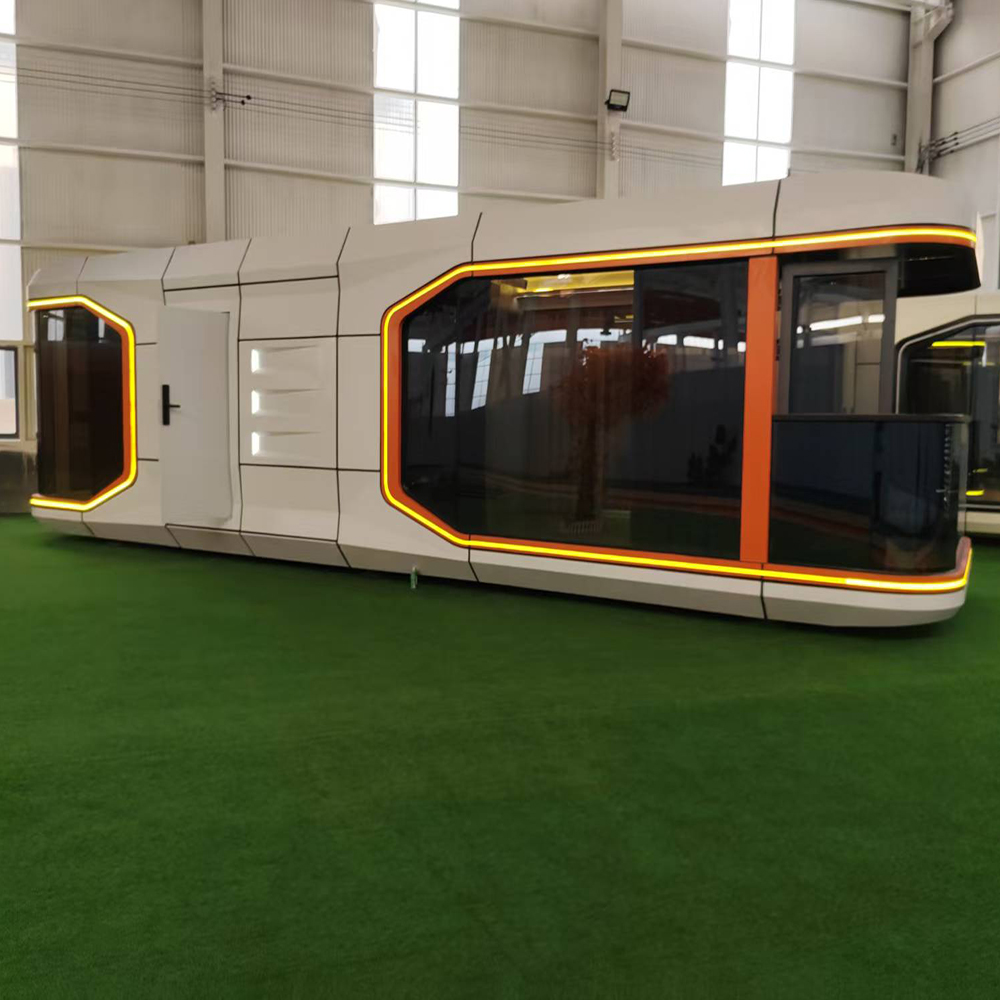 Standard Modern Camping Pod Space Prefabricated Portable Mobile Capsule Room Hotel Bathroom Prefabricated Spaceship House
Standard Modern Camping Pod Space Prefabricated Portable Mobile Capsule Room Hotel Bathroom Prefabricated Spaceship House -
 Hot-selling foldable container houses, expandable prefabricated houses, suitable for office or living use, with fast delivery.
Hot-selling foldable container houses, expandable prefabricated houses, suitable for office or living use, with fast delivery. -
 Good Quality Modular Homes Prefabricated House Expandable Container House 20FT Mobile Flat Roof House
Good Quality Modular Homes Prefabricated House Expandable Container House 20FT Mobile Flat Roof House -
 The foldable container house with side wing design can be quickly set up and is suitable for various environments.
The foldable container house with side wing design can be quickly set up and is suitable for various environments. -
 Factory Direct Sales Office Folding Container Luxury House Living Container House
Factory Direct Sales Office Folding Container Luxury House Living Container House -
 Reasonable Price 1 Bedroom Modular Container House Folding Container Home for Villa or Apartment Use
Reasonable Price 1 Bedroom Modular Container House Folding Container Home for Villa or Apartment Use
Related search
Related search- prefabricated expandable container house
- Buy fold out houses from boxabl
- fold out house boxabl
- china wholesale container prefabricate house
- Buy foldable tiny home house expandable container casa
- China the apple cabin
- mobile expandable prefab house 15ft x 20ft
- portable homes that fold out
- flat pack expandable modular container house
- Buy container house prefabricated villa









